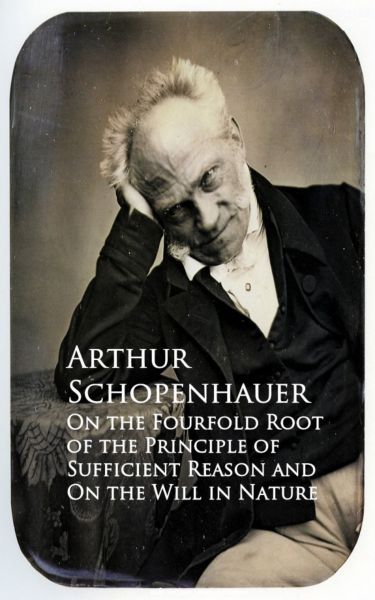On the Fourfold Root of the Principle of Sufficien and On the Will in Nature
"Just as if Kant had never existed, the Principle of Sufficient Reason still remains with Fichte what it was with all the Schoolmen, an œterna veritas: that is to say, just as the Gods of the ancients were still ruled over by eternal Destiny, so was the God of the Schoolmen still ruled over by these œterna veritates, i.e., by the metaphysical, mathematical, and metalogical truths, and even, according to some, by the validity of the moral law. These veritates alone were unconditioned by anything, and God, as well as the world, existed through their necessity. Thus with Fichte the Ego, according to the Principle of Sufficient Reason, is the reason of the world or of the Non-Ego, of the Object, which is the product or result of the Ego itself. He took good care, therefore, neither to examine nor to check the Principle of Sufficient Reason any farther. But if I had to indicate the particular form of this principle by which Fichte was guided in making the Ego spin the Non-Ego out of itself, as the spider its web, I should point to the Principle of the Sufficient Reason of Being in Space; for nothing but a reference to this principle gives any sort of sense or meaning to his laboured deductions of the way in which the Ego produces and manufactures the Non-Ego out of itself, which form the contents of the most senseless and—simply on this account—most tiresome book ever written. The only interest this Fichteian philosophy has for us at all—otherwise it would not be worth mentioning—lies in its being the tardy appearance of the real antithesis to ancient Materialism, which was the most consistent starting from the Object, just as Fichte's philosophy was the most consistent starting from the Subject.
weniger anzeigen expand_lessVersandkostenfreie Lieferung! (eBook-Download)
Als Sofort-Download verfügbar
- Artikel-Nr.: SW23665
- Artikelnummer SW23665
-
Autor
Arthur Schopenhauer
- Wasserzeichen ja
- Verlag anboco
- Seitenzahl 500
- Veröffentlichung 26.08.2016
- ISBN 9783736411869
- Wasserzeichen ja

